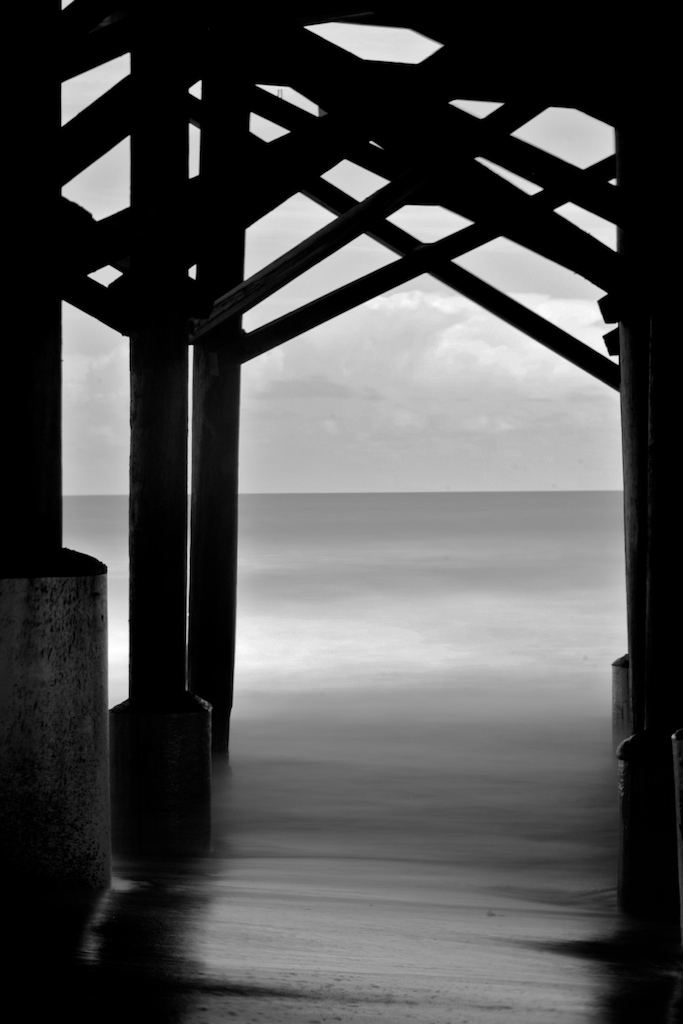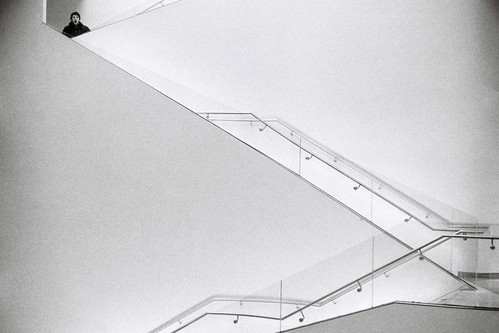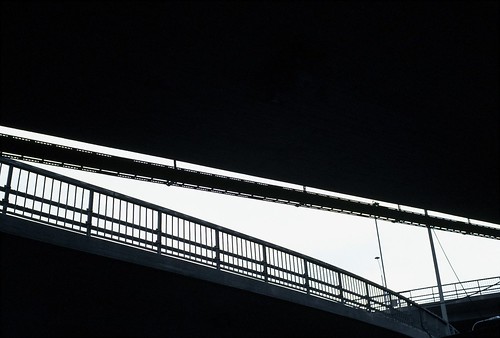Subscribe now and choose from over 30 free gifts worth up to £49 - Plus get £25 to spend in our shop
Any objections before I start?
not from me 🙂
But you "have specifically disclaimed any artistic ability" so perhaps at least considering why a composition works might go some way to improving your own.
no, I prefer to reject the concept and see what happens 🙂
But instead of just shrugging and defensively claiming that anyone who takes good, interesting, compositionally strong pictures is somehow cheating,
I'm not trying to defend myself, and I'm not saying that following the guildelines is cheating, or won't work, just that all I'm interested in is the impact of the original scene as a gestalt, in an intuitive impulse, not a protracted analysis. I never said different approaches were wrong at all.
while the site was down I was thinking about the comment someone made about my shots lacking composition, which I take as a huge compliment, though in many cases, when I'm firing from a moving vehicle I'm just glad to get a clear shot of the sky without blurred vegetation, signposts and wires in the way 🙂
Nice one Beanum - captures the drummer lost in the moment.
bit of a doublish post, didn't see it had gone up
I've always liked Araki's b/w pics. Some are right up there. Not quite Ansel Adams but some great shots nevertheless. Fantastic balance of dark and light, both in composition and in subject
[url= http://farm5.static.flickr.com/4035/4418418194_594a5bd378.jp g" target="_blank">
[url= http://www.flickr.com/photos/stuartie_c/4418418194/ ]garlicR[/url] by [url= http://www.flickr.com/people/stuartie_c/ ]stuartie_c[/url], on Flickr
Nice ethereal feel to it.
[url= http://farm2.static.flickr.com/1254/5108233751_7b55b20678.jp g" target="_blank">
[url= http://www.flickr.com/photos/stuartie_c/5108233751/ ]296/365[/url] by [url= http://www.flickr.com/people/stuartie_c/ ]stuartie_c[/url], on Flickr
[url= http://farm3.static.flickr.com/2739/4395512082_c8d86ca4a0.jp g" target="_blank">
[url= http://www.flickr.com/photos/stuartie_c/4395512082/ ]59/365[/url] by [url= http://www.flickr.com/people/stuartie_c/ ]stuartie_c[/url], on Flickr
I like it when full colour photos come out monochrome:
[url= http://148.88.53.14/rides/2006/1may/DSC_0355_.jp g" target="_blank">http://148.88.53.14/rides/2006/1may/DSC_0355_.jp g"/> [/img][/url]
[url= http://148.88.53.14/rides/2002/ambled/windermere5.jp g" target="_blank">http://148.88.53.14/rides/2002/ambled/windermere5.jp g"/> [/img][/url]
Great stuff Lorax.
Simon, that first shot is brilliant - thanks for the contribution.
[url= http://farm5.static.flickr.com/4053/4433342740_a72f522a5d.jp g" target="_blank">
[url= http://www.flickr.com/photos/stuartie_c/4433342740/ ]mackerel[/url] by [url= http://www.flickr.com/people/stuartie_c/ ]stuartie_c[/url], on Flickr
[url= http://farm5.static.flickr.com/4105/4831526595_29cd191be9.jp g" target="_blank">
[url= http://www.flickr.com/photos/stuartie_c/4831526595/ ]Ruthven Barracks[/url] by [url= http://www.flickr.com/people/stuartie_c/ ]stuartie_c[/url], on Flickr
oliverd1981 - the contrast and sharpness in that shot is spot on.
[url= http://farm5.static.flickr.com/4146/4832143536_efe5ee8db2.jp g" target="_blank">
[url= http://www.flickr.com/photos/stuartie_c/4832143536/ ]207/365[/url] by [url= http://www.flickr.com/people/stuartie_c/ ]stuartie_c[/url], on Flickr
great stuff yourself stuartie - especially love the mackerel one 🙂
Film is just better isn't it
Even when you digitise it to show us lot.
Mmmmm Kodak Tri-X in D76 .....
Sadly still digital - not got round to uploading any film yet...
However, they were all taken with Olympus OM lenses, and have been through a grainifier in GIMP
[url= http://farm4.static.flickr.com/3467/3902772499_80ca39a045_z.jp g" target="_blank">
[url= http://www.flickr.com/photos/mark_farrell/3902772499/ ]Llan Ffestiniog[/url] by [url= http://www.flickr.com/people/mark_farrell/ ]Mark-Farrell[/url], on Flickr
[url= http://farm4.static.flickr.com/3424/3903550210_a62bfae7c0.jp g" target="_blank">
[url= http://www.flickr.com/photos/mark_farrell/3903550210/ ]Tal-y-llyn railway[/url] by [url= http://www.flickr.com/people/mark_farrell/ ]Mark-Farrell[/url], on Flickr
[url= http://farm3.static.flickr.com/2671/3886078707_cf38fb7443.jp g" target="_blank">
[url= http://www.flickr.com/photos/mark_farrell/3886078707/ ]2009_08_16_5232[/url] by [url= http://www.flickr.com/people/mark_farrell/ ]Mark-Farrell[/url], on Flickr
[url= http://farm4.static.flickr.com/3436/3886079213_2e7bc60cb5.jp g" target="_blank">
[url= http://www.flickr.com/photos/mark_farrell/3886079213/ ]2009_08_16_5238[/url] by [url= http://www.flickr.com/people/mark_farrell/ ]Mark-Farrell[/url], on Flickr
[url= http://farm3.static.flickr.com/2569/4106346850_57b2539d10.jp g" target="_blank">
[url= http://www.flickr.com/photos/mark_farrell/4106346850/ ]Mercedes and Kaiser Wilhelm Memorial Church[/url] by [url= http://www.flickr.com/people/mark_farrell/ ]Mark-Farrell[/url], on Flickr
[url= http://i0u6hw.bay.livefilestore.com/y1pAvhUy_veQeiOw7FUjuqVaLFKyIg7_cwj278w-wS6tLwCIJsMHTcT_jhnlHv4pCfJPZAkz1Jpu2ZOqU6-jn0F-VbS6I3cjtMU/DSC_0117b.jp g" target="_blank"> http://i0u6hw.bay.livefilestore.com/y1pAvhUy_veQeiOw7FUjuqVaLFKyIg7_cwj278w-wS6tLwCIJsMHTcT_jhnlHv4pCfJPZAkz1Jpu2ZOqU6-jn0F-VbS6I3cjtMU/DSC_0117b.jp g"/> ?psid=1[/img][/url]
http://i0u6hw.bay.livefilestore.com/y1pAvhUy_veQeiOw7FUjuqVaLFKyIg7_cwj278w-wS6tLwCIJsMHTcT_jhnlHv4pCfJPZAkz1Jpu2ZOqU6-jn0F-VbS6I3cjtMU/DSC_0117b.jp g"/> ?psid=1[/img][/url]







